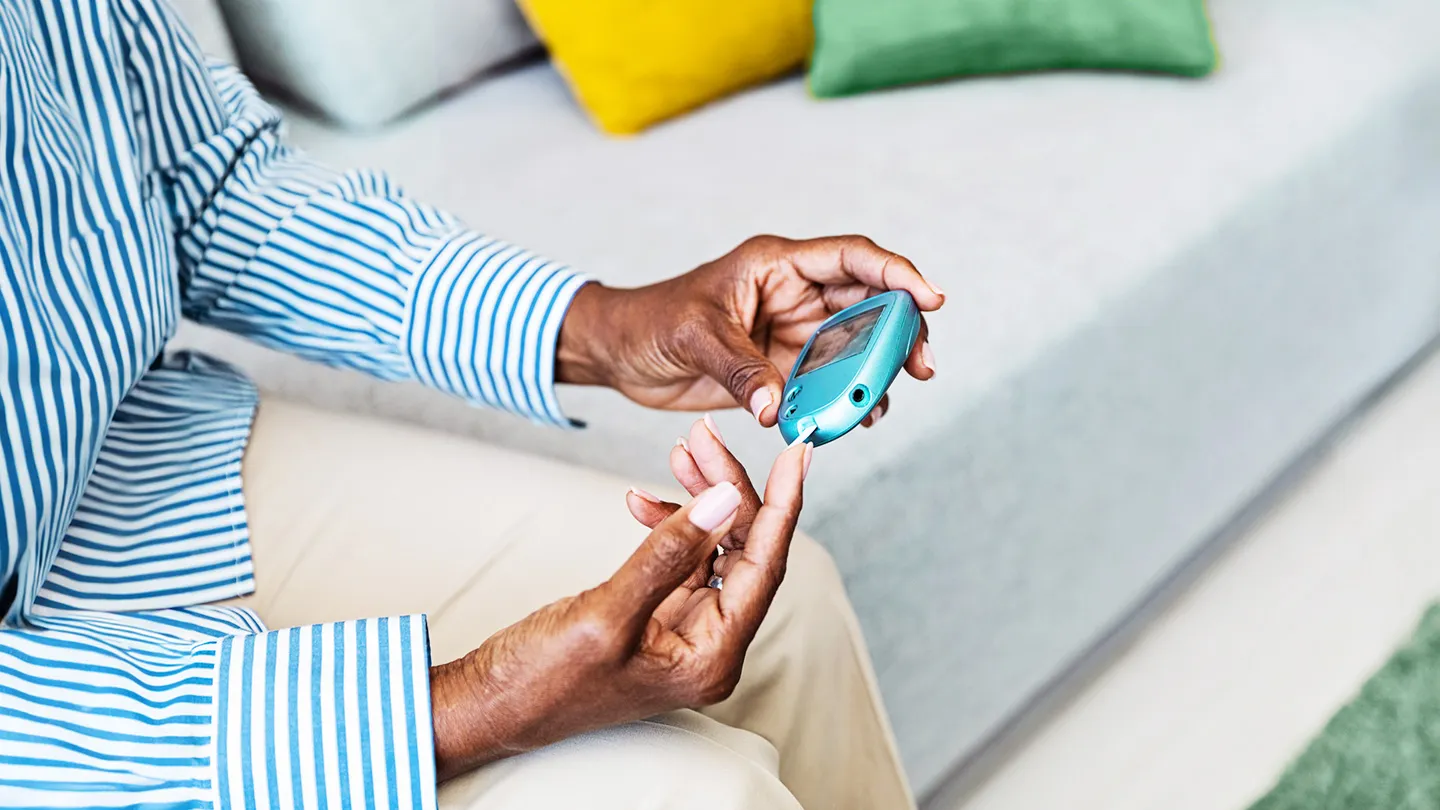There’s more than one way to measure your blood sugar.
Blood Sugar Meter or Continuous Glucose Monitor (CGM)
A blood sugar meter reveals your blood sugar level at the moment the test is taken.
Most people with diabetes are first taught how to measure their blood sugar with a blood sugar meter. You draw a drop of blood, insert it into a “fingerstick,” and receive the device’s reading of your blood sugar level at that moment. Depending on your diabetes management status, you may be advised to use a blood sugar meter multiple times a day, only once a day, or even less frequently.
For many people with type 2 diabetes, the most important time to use a blood sugar meter is first thing in the morning. This is known as a fasting blood sugar test, as it measures blood sugar after you have not eaten or drunk anything but water for at least the past eight hours. This can provide an important baseline of your blood sugar at its lowest level, unaffected by food, drink, exercise, and other daily habits.
Doctors may encourage others, especially those who use insulin to manage their type 1 or type 2 diabetes, to test their blood sugar multiple times throughout the day, including before and after meals and exercise. These checks can show how food and lifestyle choices affect diabetes management and can help determine how much insulin they need and how often.
Marilyn Tan, MD, a clinical associate professor of medicine specializing in endocrinology, gerontology, and metabolism at Stanford University in California, explains that CGMs measure changes in the interstitial fluid that contains blood sugar, rather than blood sugar itself.
“So readings may lag and may be less accurate at extremes of glucose [levels],” Dr. Tan says.
A1C Test
Your doctor may want you to have an A1C test as often as every three months, though people with more stable blood sugar control may need a check only once or twice a year.
Typically, a doctor administers an A1C via a blood draw or finger prick, with a sample sent to a lab to process results. Over-the-counter, at-home A1C tests are available. Ask your doctor if they are appropriate for your situation.
Read the full article here




